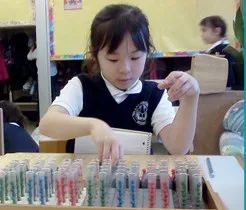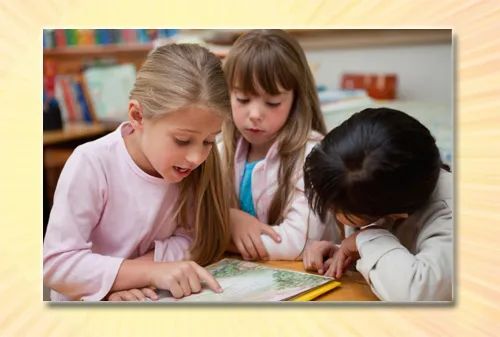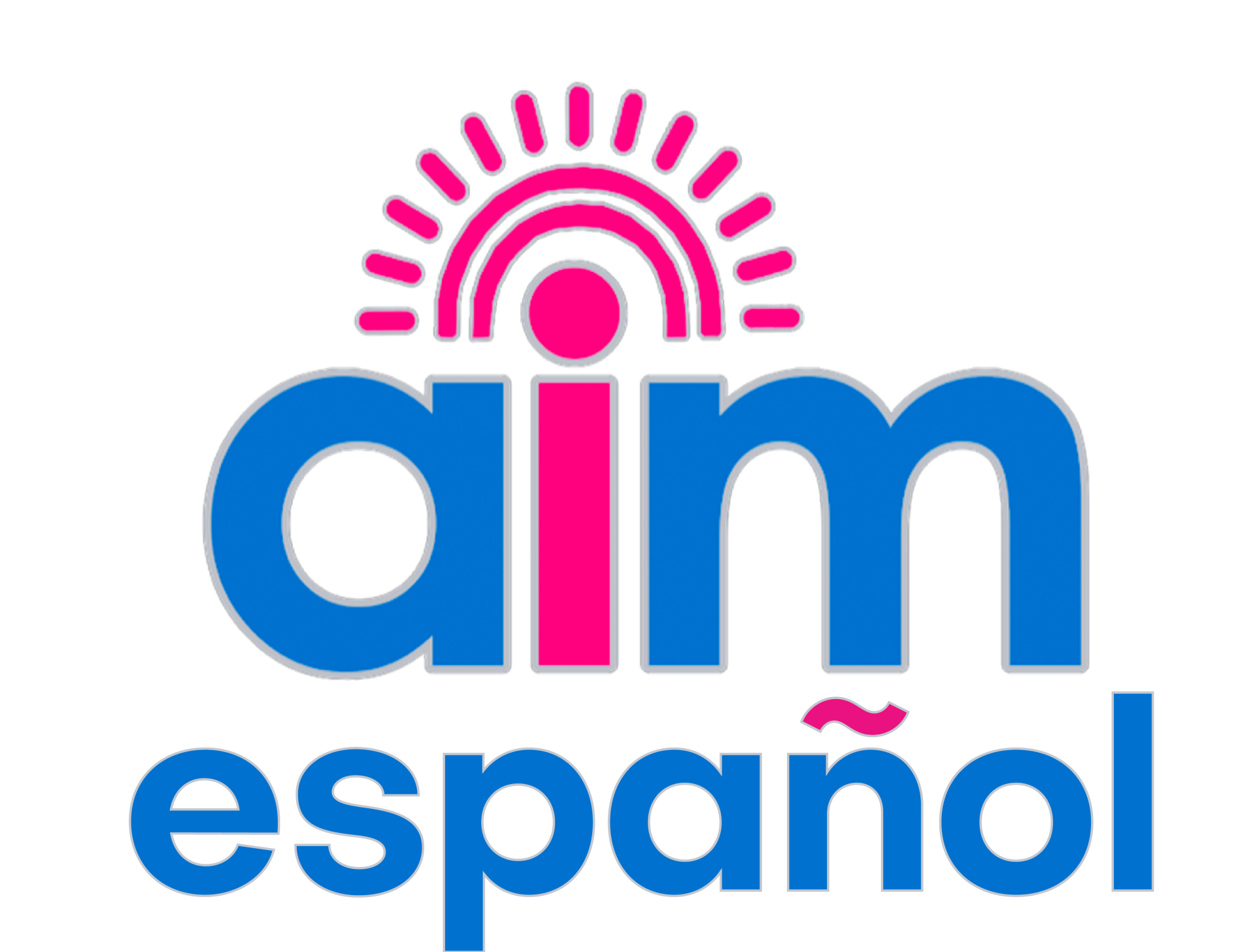The Elementary Child: a Whole New Ballgame!
Whether you are a teacher, homeschooler, or parent of a six-to-twelve-year old child, it is important to understand that the child’s needs change dramatically as they transition from primary into elementary school. The elementary school-aged child has entered into an entirely different stage of learning. To continue meeting their needs, we adults must change with them.
As a rule, this developmental transition occurs sometime between six and seven years old. As explained by Janet Nordemann, M.Ed. and National Board Certified Montessori Elementary Teacher, these differences can be grouped into five main concepts:
- From absorbent mind to reasoning mind
- From immediate environment to expanded environment
- From tangible objects to abstract symbols
- From preferring to work alone to cooperation
- From interest in facts to interest in meaning
From Absorbent Mind, to Reasoning Mind
 From birth to approximately age six, children have what Montessorians call an “absorbent mind.” Children at this age soak up information indiscriminately and spontaneously. The absorbent mind has a sponge-like ability to absorb from the environment. Children learn the foundations for functioning within their own culture; this includes language, mathematics, the sciences, music, art, as well as social skills.
From birth to approximately age six, children have what Montessorians call an “absorbent mind.” Children at this age soak up information indiscriminately and spontaneously. The absorbent mind has a sponge-like ability to absorb from the environment. Children learn the foundations for functioning within their own culture; this includes language, mathematics, the sciences, music, art, as well as social skills.

As they reach six to seven years of age, children transition into a very different developmental stage, and their mind becomes a “reasoning mind.” During the reasoning mind stage, children must now learn through conscious work and memory. The reasoning mind is the mind we as adults use to live and learn.
From Immediate Environment, to Expanded Environment
Children under six years old are sensitive to their immediate environment. It is an integral part of the Montessori method to carefully prepare the classroom to meet the needs of the child.

The elementary child is moving beyond their immediate surroundings. They are interested in what is going on in society. Montessorians call this the “acquisition of culture” phase. In the Montessori elementary classroom, it is still important to prepare the environment to meet the needs of the child, but now the environment goes beyond just the classroom.
As the elementary child expands his or her social awareness, she becomes intrigued with the concepts of right and wrong, good and evil, and the reason why.
“In the field of morality, the child now stands in need of his own inner light.” ~ Maria Montessori
From Touchable Objects, to Abstract Thinking
It is essential for the primary school-aged child to manipulate objects. Very young children learn with their hands. They learn through movement, not only to develop muscular control (or motor control) but also to expand neuromuscular  development.
development.

The elementary child has both the ability and the desire to think abstractly, to manipulate symbols, explore language and math, and to seek further knowledge through investigation and exploration. The ability to think abstractly meets the needs of his reasoning mind. Elementary students still have a need for hands-on learning, but also learn through research, inquiry, and experimentation.
“The secret of good teaching is to regard the child’s intelligence as a fertile field in which the seeds may be sown to grow under the heat of the flaming imagination.” ~Maria Montessori
From Preferring to Work Alone, to Cooperation
The primary child is content to work independently but children at the elementary age are developing social awareness.  They become interested in working with others or cooperative learning. The elementary child needs to associate with others, especially through organized activities such as scouts, team sports, and social projects. Cooperative learning and teamwork are not just for the classroom, but are fundamental for learning moral, social, and reasoning abilities.
They become interested in working with others or cooperative learning. The elementary child needs to associate with others, especially through organized activities such as scouts, team sports, and social projects. Cooperative learning and teamwork are not just for the classroom, but are fundamental for learning moral, social, and reasoning abilities.

From Facts, to Meaning behind the Facts
Primary children are content with facts. Elementary children want to know more than the ”what;” they want to know the “how” and “why” behind the facts. They have an inner need to understand meaning and apply purpose.
“An inner change has taken place, but nature is quite logical in arousing now in the child not only a hunger for knowledge and understanding, but a claim to mental independence, a desire to distinguish good from evil by his own powers, and to resent limitation by arbitrary authority.” ~Maria Montessori
Working in a Montessori Elementary Classroom? Consider our Elementary Assistant course. Click here to learn more






















